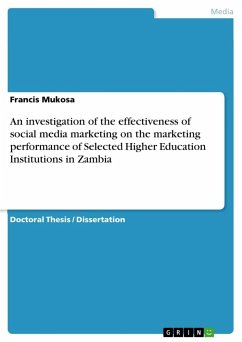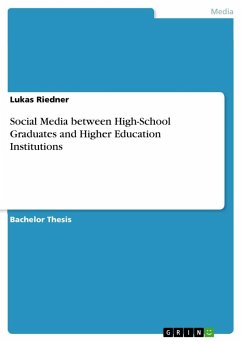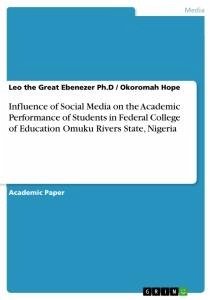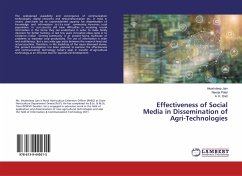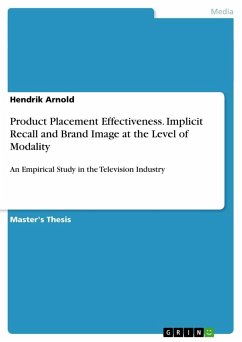Doctoral Thesis / Dissertation from the year 2022 in the subject Communications - Public Relations, Advertising, Marketing, Social Media, grade: Pass, , course: Marketing, language: English, abstract: HEIs in Zambia have adopted the use of social media in advertising, online learning and also for administrative purposes. Social media has developed in the recent years to a level where it presents itself as the biggest virtual market with the potential to increase geographic markets and revenue for organizations. While cases of HEIs that have used social media marketing for purposes of marketing exist in other places, there is no significant research in the Zambian environment that shows empirical evidence that the use of social media marketing can impact marketing performance in HEIs. The purpose of this study is to investigate the effectiveness of social media marketing on marketing performance in HEIs and the findings are meant to build a model for social media marketing for HEIs in Zambia in (see figure 5.2 in Chapter 5). Data in this research was collected from twelve HEIs using both qualitative and quantitative research methods, since this research is a mixed research with both deductive and inductive arguments. The data collection techniques included a semi structured interview for qualitative data and a semi structured questionnaire for the quantitative data. Data analysis was carried out using different techniques in SPSS for the quantitative data and content analysis using Google analytics for the qualitative data. The implications of the findings in chapter four mean that HEIs in Zambia must begin to use social media not only for administrative or advertising purposes but they must use it effectively as a tool to increase their market share and increase their revenue. The findings and data analysis in this research indicated that social media is effective in marketing HEIs in Zambia, however these institutions must adopt the suggested model in Figure 5.2 in Chapter 5 if they are to enhance social media performance for marketing

